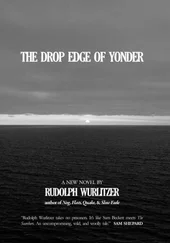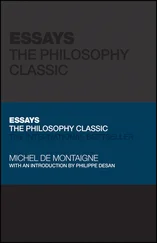What is certain is that she left a world behind her. As a child she lived in Mandal, the most southern city in Norway, and those years were by every account (not only my mother’s) idyllic. Her memories from the first ten years of her life, with her parents, two brothers, and a sister in a beautiful house above the city where her father was postmaster, are ones of such aching happiness that she says she sometimes kept her memories from me and my three sisters in fear that we might feel deprived in comparison. When she was ten years old, her father lost his money and his land. He had undersigned a business deal for a relative that went sour. Although he might have saved himself from ruin, my grandfather kept his word of honor and paid on that debt, which wasn’t really his, for the rest of his life. I think this event forms the greatest divide in my mother’s life. Suddenly and irrevocably, it cut her off from the home she loved and threw her into another as surely as if the earth had opened up and formed an impassable chasm between the two. The family moved to Askim, outside of Oslo, and this is why my mother’s voice carries traces of both a southern accent and an eastern one: the mingled sounds from either side of the chasm. I have never doubted the happiness of my mother’s first ten years, in Mandal. She had parents who loved her, rocks and mountains and ocean just beyond her doorstep. There were maids to lighten housework, siblings and family close by, and Christmases celebrated hard and long at home and in the house of tante Andora and onkel Andreas, people I have imagined repeatedly but seen only in photographs taken when they were too young to have been the aunt and uncle my mother knew. But it seems to me that losing paradise makes it all the more radiant, not only for my mother but, strangely enough, for me. It is an odd but emotionally resonant coincidence that every time I have been in Mandal, it doesn’t rain. Rain is the torment of all Norwegians, who seek the sun with a fervor that might look a little desperate to, say, a person from California. The truth is it rains a lot in Norway. But when my mother took us there in 1959, it was a summer of legendary sunshine, and when I was last in Mandal, for a family reunion in 1991 with my mother and sisters and my own daughter, the sun shone for days on end, and the city gleamed in the clear, perfect light of heaven.
I never knew my grandfather. He died when my mother was nineteen. There are photographs of him, one in which he stands facing a white horse with three young children on its back. He is wearing a straw hat that shades his eyes, and between his lips is a cigarette. What is most striking in the picture is his posture, proud and erect, but with another quality that is almost but not quite jaunty. It is somehow obvious that he didn’t strike a pose. He had intelligent features — his eyes especially give the impression of thought. My grandmother said he read (almost to the exclusion of anything else) church history and Kierkegaard. She adored him and never married again. I’m sure it never entered her mind to do so. When I think of my mother’s mother, I think of her voice, her gestures, and her touch. They were all soft, all refined; and, at the same time, she was freely and passionately affectionate. For some reason, I remember with tremendous clarity walking through her door, when I was twelve, with my sisters and my mother and father. It was winter and my mother had knit me a new white hat and scarf to go with my brown coat. When my grandmother greeted me, she put her hands on either side of my face and said, “You’re so beautiful in white, my darling.”
The last time I lived in Norway, I visited my grandmother every day after school. She lived in a tiny apartment that rose above a small, old graveyard in the city. She was always happy to see me. I’m afraid I was a morbidly serious adolescent that year, a girl who read Faulkner and Baldwin, Keats and Marx with equal reverence, and I must have been somewhat humorless company. But there was no one I liked being with more than her, and this may have made me livelier. We drank coffee. We talked. She loved Dickens, whom she read in Norwegian. Years after she was dead, I wrote a dissertation on Charles Dickens, and though my study of the great man would no doubt have alarmed her, I had a funny feeling that by taking on the English novelist, I was returning to my Norwegian roots.
My mormor (in Norwegian maternal and paternal lines are distinguished: mormor literally means “mother-mother”) is at the center of my real experiences of Norway, Norway as particular and daily, as one home. She was a lady in the old sense of the word, the word that corresponds to gentleman —a person who never shed her nineteenth-century heritage of gentility. I was deep in my self-righteous socialist phase, and I’ll never forget her saying to me in her soft voice, “You must be the first person in the family to march in a May Day parade.” She wore a hat and gloves every time she went out, dusted her impeccable apartment daily, including each and every picture frame that hung on the wall, and was shocked when her cleaning lady used the familiar form du when she spoke to her. I can recall her small apartment very well — the elegant blue sofa — the pictures on the wall — the shining table — the birdcage that held her parakeet Bitte Liten, a name I would translate as “the tiny one.” And I remember every object with fierce affection. Had I not loved my grandmother, and had she not loved my mother very well and loved me, those things would just be things. After Mormor died, I walked with my own mother outside our house in Minnesota, and she said to me that the strangest part of her mother’s death was that a person who had only wanted the best for her wasn’t there anymore. I recall exactly where the two of us were standing in the yard when she said it. I remember the summer weather, the slight browning of the grass from the heat, the woods at our left. It’s as if I inscribed her words into that particular landscape, and the funny thing is that they are still written there for me. Not long after that conversation, I dreamed that my grandmother was alive and spoke to me. I don’t remember what she said in the dream, but it was one of those dreams in which you are conscious that the person is dead but is suddenly alive and with you again. Although all other architectural detail is lost, I know I was sitting in a room and my grandmother walked through a door toward me. It was a threshold dream, a spatial reversal of my memory of walking through her door and her telling me I was beautiful in white. I remember how intensely happy I was to see her.
My daughter, Sophie, has always called my mother “Mormor,” and no name could be more evocative of the maternal line. Mother-mother is for me an incantation of pregnancy and birth itself, of one person coming from another, and then its repetition in time. When I was pregnant with Sophie, I felt it was the only time I had been physically plural — two in one. But of course it had happened before, when I was the one inside that first place. Uterine space is mysterious. We can’t remember its liquid reality, but we know now that the fetus hears voices. After the violence of birth (all the classes, breathing, and birth-cult nonsense in the world do not make the event nonviolent), the newborn’s recognition of his or her mother’s voice forms a bridge across that first, brutal separation.
2
By its very nature, original space, maternal space, is nonsense; human experience there is undifferentiated and so can’t be put into words. It lives on in our bodies, however, when we curl up to sleep, when we eat, when some of us bathe or swim. And surely it leaves its traces in our physical desire for another. Paternal space in an ideal sense is different. Although we are “of” our fathers, just as we are “of” our mothers, we were never “in” our fathers. Their separateness is obvious. In the real lives of real people, this distance may be exaggerated or diminished. A lot of children of my generation grew up with more or less absent fathers. I didn’t. My father was very much there in my life and in the lives of my sisters, and like my mother, he was fundamentally shaped by the place where he grew up.
Читать дальше












